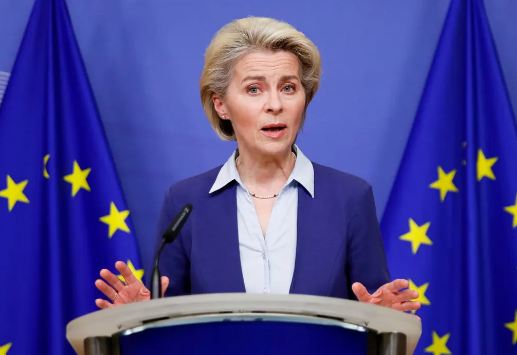EU Chief sparks protectionism concerns

DNA
ISLAMABAD: SEPT 25 – With the European Union holding Parliamentary elections next year, European Commission President Ursula von der Leyen seems intent on striking a combative stance toward China, announcing an anti-subsidy probe into Chinese electric vehicles on Wednesday.
Since “global markets are now flooded with cheaper electric cars, and their price is kept artificially low by huge state subsidies”, an investigation is needed to decide whether punitive tariffs should be imposed to protect European EV producers, she said.
Such a combative posture as a champion of European business might in some ways be intended to present a tough image as a champion of EU interests, thus securing her a second term. But it will also undermine the EU’s longstanding role as a leader of global free trade and hinder the development of the European EV industry and be a drag on the bloc’s green transition.
While she claimed that “Europe is open to competition”, the European Commission chief also said that “Europe will do whatever it takes to keep its competitive edge” giving the impression she would not mind becoming less than open when it comes to competition with Chinese EV makers.
It is true that Chinese EVs have witnessed a phenomenal surge in overseas markets recently. According to European Commission data, Chinese-made EVs account for 8 percent of the EU market now, and may reach 15 percent in 2025. The country has surpassed Japan to become the world’s largest auto exporter in the first quarter of 2023, with Chinese auto exports registering a stunning 31 percent rise last month, according to the China Passenger Car Association.
In addition to their industry-leading battery technologies, the EVs are generally 20 percent lower in prices than EU-made models. While the Chinese government does implement an industrial policy that encourages environmentally friendly industries including EVs, it is unfair to attribute the competitive edge of Chinese EV exports entirely to subsidies.
The Chinese Commerce Ministry contends rightly that the sector’s competitive advantage is not due to subsidies, and that the EU is seeking to protect its own industry in the name of “fair competition” with protectionist measures that will seriously disrupt and distort the global automotive industry and supply chains and will have a negative impact on China-EU economic and trade relations.
It is thought-provoking that even Germany, the foremost European automaking country and exporter of automobiles, is against the approach.
German Chancellor Olaf Scholz stated just last week that “Fair competition stimulates the economy…Competition should spur us on, not scare us.”
European critics of the investigation are correct in pointing out the dangers of Europe abandoning its “path of virtue” in defending free trade.
EU auto companies have invested and operated in China for many years, and the Chinese market has become the largest overseas market for many EU car companies. There is actually much space for the Chinese and European automotive industries to cooperate. This would be more mutually beneficial for the two sides than the measures proposed by Von der Leyen.
Related News

Azerbaijan, Russia explore bilateral cooperation
MOSCOW, FEB 13: Rahman Mustafayev, Azerbaijan’s Ambassador to Russia, met with Mikhail Galuzin, Russian DeputyRead More

February 13 marks World Radio Day
BAKU, FEB 13: Proclaimed in 2011 by UNESCO Member States and adopted by the UnitedRead More


Comments are Closed